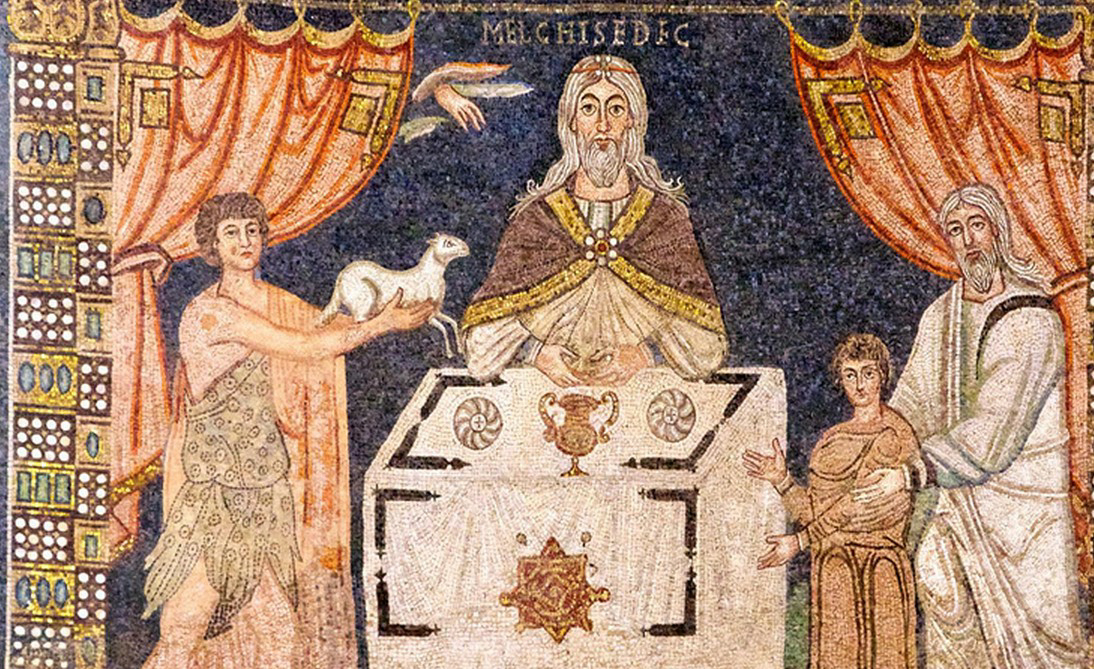First, who is Melchizedek? Why does this man styled as the “King of Salem” and whose name means “King of Righteousness”[3] only appear once in the book of Genesis for a brief encounter with Abraham, never to appear again? Well, the reader may be surprised to know that Melchizedek does appear more than once in the book of Genesis; in fact, he appears earlier in the book of Genesis, albeit under a different name. For Melchizedek actually makes his first appearance not as the righteous priest-king of Salem, but rather as the firstborn son of Noah the Patriarch, whose name is Shem.[4]
How do we know that Melchizedek is the same person as Shem? We know this most recently from the consensus of modern Catholic biblical scholars such as Scott Hahn,[5] John Bergsma,[6] Brant Pitre,[7] and Steven Smith.[8] Moreover, the ancient Jewish tradition almost unanimously identified Shem and Melchizedek as the same person;[9] for both the Targums — which were the ancient translations of the Jewish Scriptures into Aramaic, the language that the Jews spoke during the time of Jesus — and the later rabbinic tradition both regularly and consistently identify Shem and Melchizedek as being the same person.[10] Further, the Christian tradition — which is made up of the Fathers of the Church and of the Scholastic Theologians — was nearly just as unanimous as the Jewish tradition was on this point of the identity of Shem-Melchizedek.[11] Among the various Church Fathers that identified Shem with Melchizedek,[12] we have Saint Jerome who supported the thesis that Shem is Melchizedek,[13] and also Saint Ephrem the Syrian who also accepted this position, writing the following:
This Melchizedek is Shem, who became a king due to his greatness; he was the head of fourteen nations. In addition, “he was a priest.” He received [his priesthood] from Noah, his father, through the rites of succession. Shem lived not only to the time of Abraham, as Scripture says, but even to [the time of] Jacob and Esau.[14]
Further, the eminent Scholastic Theologian Saint Thomas Aquinas also accepted the tradition that Shem is Melchizedek in his commentary on Saint Paul’s Letter to the Hebrews. Here, the Angelic Doctor writes that:
For so the Scripture names [Melchizedek] in Genesis (Gen 14:18), where his history, which the Apostle supposes here, is recorded. According to a Gloss, the Hebrews say that this was Shem, the first-born of Noah, and when Abraham obtained the victory, he was 390 or 309 years old and met Abraham, his nephew.[15]
Lastly, the Glossa Ordinaria — which was the medieval compendium or collection of the various glosses or commentaries of the Church Fathers on Scripture — also affirms the identification of Shem with Melchizedek, writing that “the Hebrews say this Melchizedek was Shem son of Noah, who lived until Isaac.”[16] The Christian tradition’s possible unanimity or consensus on this topic is a particularly compelling point about the identity of Shem-Melchizedek, given the unanimity of the Fathers.
...
